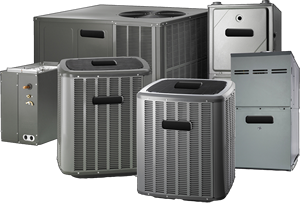Why Size Matters With AC Units
 There are many instances in life where bigger is better, depending on your preference—meal size, lottery winnings, and discounts. Getting the biggest bang for your buck is what everyone strives for, and in order to do that, you need to be an educated consumer. It’s easier to be aware of the various costs, discounts, benefits, and limitations of items you purchase on a daily basis, but it’s also important to understand items you don’t purchase that often, like your HVAC unit.
There are many instances in life where bigger is better, depending on your preference—meal size, lottery winnings, and discounts. Getting the biggest bang for your buck is what everyone strives for, and in order to do that, you need to be an educated consumer. It’s easier to be aware of the various costs, discounts, benefits, and limitations of items you purchase on a daily basis, but it’s also important to understand items you don’t purchase that often, like your HVAC unit.
Air conditioners are one thing that fall into the category of something we don’t buy very often, and being more informed before making a purchase can not only save you money up front but also in the long run. Essentially, the size of AC unit you purchase for your home is directly related to a number of factors; and bigger isn’t always better.
Get a Professional Site Visit
Looking at the size of AC unit you currently have when it’s time to replace it is a good indication as to what size you need moving forward. It’s important to note how it has performed over the years in terms of keeping your space cool and evenly distributing air throughout the house.
Your first step should be calling a professional from Point Bay Energy Heating and Cooling to assess your living space, perform an inspection and air conditioning load calculation, and make a recommendation as to what type and size of AC unit you need. It’s important to calculate the load properly as an incorrect calculation can lead to inefficiencies and improper functioning of your AC unit.
An oversized AC unit can result in:
- Shorter Cooling Cycles: Optimal AC efficiency occurs through continued operation, so it’s important to achieve the longest run times you can with your AC unit. During most of its operation, an AC unit achieves loads that are below its maximum threshold anyway, so if a unit is oversized, short cycling wastes a lot of energy.
- Moisture Build-up: Aside from cooling your living space, AC units are intended to remove humidity from the air. During short running cycles the heat transfer coil on your AC unit doesn’t have enough time to get to a low enough temperature to completely remove the moisture from the air. When the short cycle is over the condensation on the coil simply evaporates back into the air. While your house may feel cool after a short cycle, it may also feel somewhat clammy due to the remaining moisture.
- The Noise: Ideally an AC unit would never make any noise, but unfortunately it’s very dependent on how your heating/cooling system was built in the first place. The larger your AC unit, the faster the air moves throughout the system and creates more noise. Ideally, to reduce noise you should get the smallest unit that efficiently cools your home.
- Cost: The cost of your AC unit is impacted by the cooling capacity and the SEER (seasonal energy efficiency ratio).
Find out more tips on how to choose the right size your HVAC unit and contact the air conditioning pros at Point Bay Energy Heating and Cooling today!
